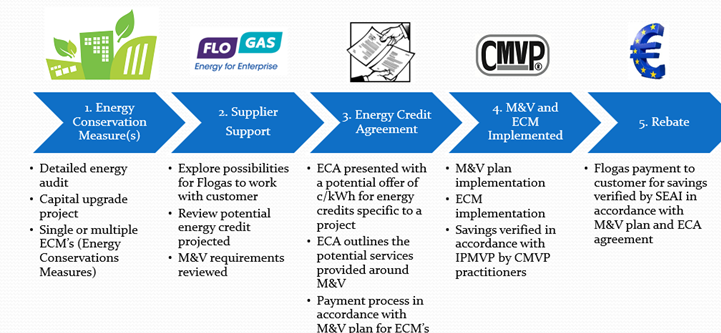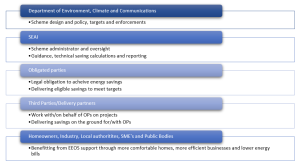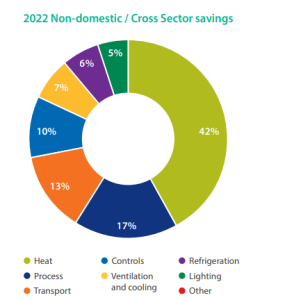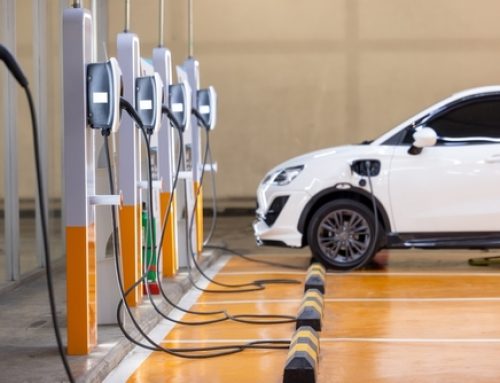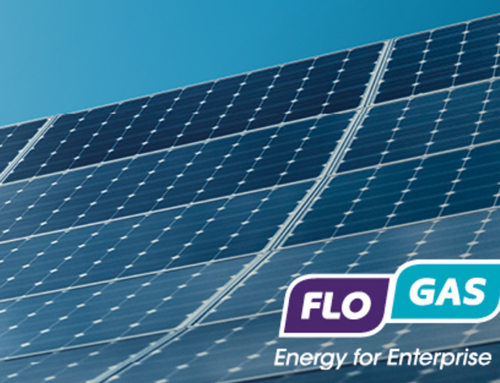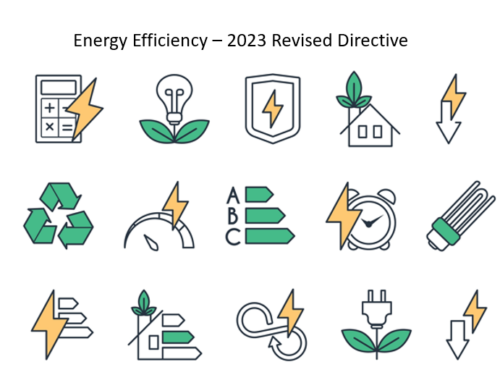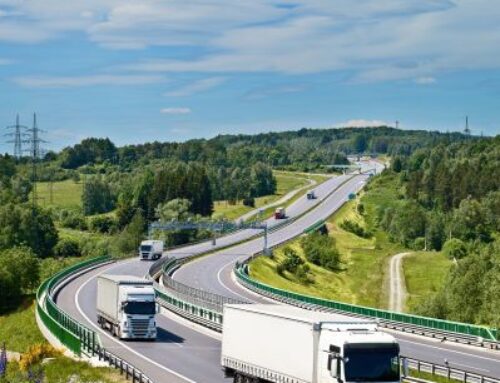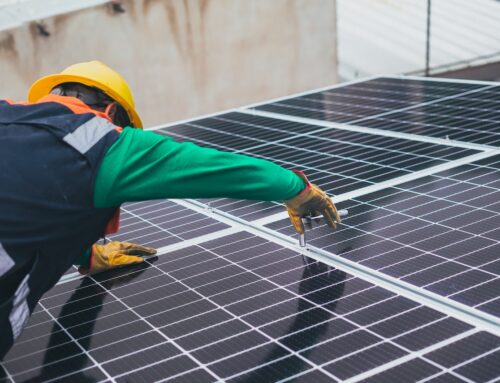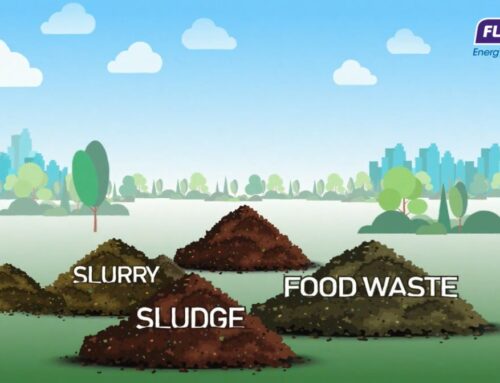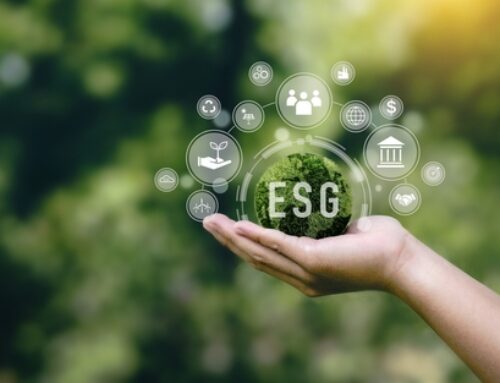Ireland continues to make significant strides in its journey towards a sustainable future, with the Energy Efficiency Obligation Scheme (EEOS) leading the charge. At the heart of this initiative lies the Non-Residential Energy Credit (NREC), designed to boost energy efficiency across Irish businesses and communities.
Understanding the EEOS and NREC
The EEOS, from the Energy Efficiency Directive (EU/2023/1791), sets ambitious targets for reducing greenhouse gas emissions by at least 55% compared to 1990 levels by 2030. Under this scheme, energy suppliers selling over 400 GWh annually, known as Obligated Parties (OPs), are required to support energy efficiency projects in businesses throughout Ireland. The NREC works on a simple yet effective principle: for every unit of energy saved through these projects, OPs earn energy credits towards their targets. This not only helps Ireland meet its national and European energy saving goals but also provides tangible benefits to businesses.
Key Parties Involved in the Scheme
Key Supports OP’s Can Support Business and Local Bodies.
OPs can provide both technical and financial support to contribute to energy efficiency projects.
- Monetary contributions per kWh saved
- Measurement and verification services
- Project management and coordination
- Quality assurance services
- Tender evaluation support
- Technical support
Benefits for Irish Businesses
- Financial support: OPs provide direct monetary contributions towards energy efficiency projects, reducing initial investment barriers.
- Technical expertise: Certified energy practitioners assist with energy audits, implementing energy management systems, and identifying efficiency opportunities.
- Cost reduction: Improved energy efficiency leads to lower operational costs, enhancing business competitiveness.
- Environmental impact: By reducing energy consumption, businesses actively contribute to Ireland’s climate goals.
Potential Energy Efficiency Upgrade Opportunities
- Lighting upgrades: LED lighting, smart lighting controls
- Heating, ventilation, and air conditioning systems: high-efficiency boilers and furnaces, heat pumps, smart thermostats
- Building insulation and envelope improvements: wall and roof insulation
- Energy management systems: building energy management systems, energy monitoring
- Appliance upgrades: energy-efficient appliances, smart appliances
- Industrial process improvements: variable speed drives, compressed air system upgrades
Impact of EEOS on Cross Sector Energy Upgrades
SEAI conducted an analysis of the percentage of savings with respect to the energy upgrades in 2022. The results are as below:
Figure 1: 2022 Savings achieved from different Energy Upgrades from SEAI website
The Flogas NREC Process
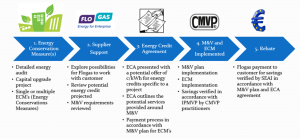
Author: Vinith Gerald


